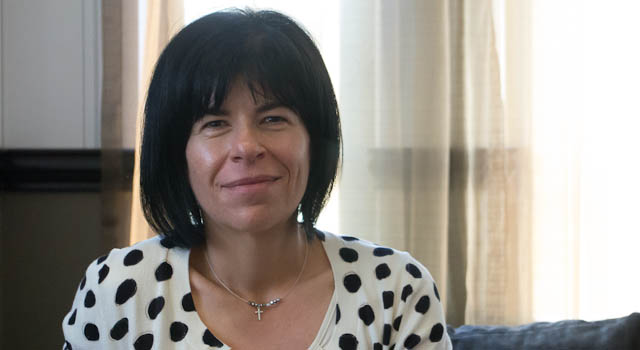
Six hundred media workers lost their jobs in South Africa in the past 12 months. Those remaining are working at organisations that are struggling to survive in a world where print is losing circulation and online earnings are not filling the gap in income.
Although it appears that circulation has stabilised nationally, the numbers are pulled up by a growth in vernacular publications and localised newspapers. The trend for weekly and daily print titles is still heading down, according to the 2014 State of the Newsroom report. Compiled by the journalism department at the University of the Witwatersrand, it looks at the challenges and opportunities facing the industry.
The findings are grim. Last year, the report used a naval metaphor, equating newsrooms with leaky ships facing strong headwinds, but with an adventurous spirit. But this year it said: “The newsroom ship battened down the hatches amid the gathering storm.”
The report — compiled from data and interviews with 77 editors and media professionals — is an analysis of how local media houses are struggling as they face ever-decreasing print sales on one hand and investing in online models that have yet to turn a profit on the other.
The report said that readers are becoming “platform agnostic”. In the past, people would read a certain newspaper because they enjoyed its style and trusted the content. But increasingly they are looking elsewhere for their news, it said. They want a mix of content and variety in the way it is delivered. There is competition for people’s attention, but few media are earning money from it. Traditional newsrooms, which have relied on giving people breaking news in print format, are struggling to keep up with the changing habits of consumers, said the report.
It said a few publications, such as Business Day, have experimented with making people pay for what was previously free content online. Some use what are called “leaky paywalls”, where people can view a certain number of articles for free. After this, they have to subscribe. But few people are doing this, said the report.
“The bottom line is that online is not bringing in sufficient sustainable revenue,” it found. This means the media industry is seeing decreasing income from its print units and no growth in online revenues to make up the difference. “Finding solutions to monetise content is one of the biggest headaches facing publishers,” the report said.
The only media growth this year has been in radio, television and vernacular publications. In 2004 there were 67 television channels in South Africa. Now there are more than 180. In the past year, the isiZulu newspaper Isolezwe grew from just under 900 000 daily sales to more than a million. Weekly publications lost circulation, but at a slower rate than in the years immediately preceding the 2008 economic crash, the State of the Newsroom report said.
Its conservative estimate is that 596 people have been retrenched from local media organisations since July 2013.
Franz Krüger, adjunct professor of journalism at Wits, said: “Audiences are moving quite strongly away from print and towards online.” This presents a problem for legacy print publications because it means advertisers are also leaving.
First port of call
He said “fundamentally different players” are benefiting from the move, such as Facebook and Twitter. Young people tend to go to these social media platforms first for information, and then to a traditional media source for confirmation. To survive, media companies have to leverage their brands and start making money from other things, said Krüger. Debates and events at which journalists talk to audiences are a good starting point.
But he warned that there is still not enough innovation locally. Publications overseas are changing how they work across all their platforms and are experimenting.
“People are talking like everything is going to collapse tomorrow, but this is a slow thing,” he said. Paywalls and native advertising — paid-for online editorial content — are becoming more prevalent, Krüger said, and this is one way that journalism can pay for itself.
People still want journalists to give them trusted information, he said. “We will always have journalism in some form. I can’t imagine a complex society without a group of people who supply trusted information.”
Vicki Myburgh, entertainment and media industries leader at auditing firm PwC, said South Africa is lucky because it lags behind other economies in media consumption patterns. This is mainly thanks to the low penetration of broadband Internet. A relatively small proportion of people can therefore read the online versions of publications. Instead of doom and gloom, she said, this actually means South African print media still has a future — in the near future, at least.
“Advertising spend for printed editions will consume the overwhelming majority of total advertising revenues, even in 2018,” Myburgh said.

According to PwC’s 2014-2018 Entertainment and Media Outlook report, only 1,5m South Africans have access to broadband — and this number is expected to grow slowly. The major growth will be in consumers who have smartphones that can access the internet; by the end of the decade, 95% of people will own one, it said.
But whereas digital will grow, it is forecast that print will still be the main earner. Its share of total advertising revenue will grow from R8bn last year to R11bn in 2018, the PwC report said.
In other countries, the recession in 2008 saw a rapid drop in newspaper circulation, with more people moving online for their news. The report predicts that, although circulations are currently decreasing, the trend should reverse by 2015 and ensure print still draws the largest audience and share of advertising.
Digital advertising income is expected to grow by 22% in the next five years — but, coming off a low base, will still only contribute 6% (R661m) to advertising revenue in 2018.
With a million people moving into South African cities each year, local publications also have the advantage — missing in other developing economies such as Kenya — of audiences that are easy to reach. This will push a steady demand for newspapers, it said.
“Printed newspapers, along with radio, are the most effective methods of reaching the majority of South Africa’s population.”
‘Effective hindsight’
PwC’s Myburgh said the growth in print profits should buy media houses enough time to work out how to make money from digital platforms. It will give them the benefit of “effective hindsight”, seeing how other countries handle the change. But this has to happen quickly. By the 2020s, increased broadband and smartphone usage will mean 95% of South Africans over the age of 15 will have access to online media.
Using the example of The Economist, the report recommends that newspapers should move away from reacting to the news cycle and invest in journalists. This would allow them to “deliver a premium product” that people are willing to pay for, regardless of the platform.
Nicky Jones of the University of KwaZulu-Natal said media need to ask: “What do people want, and how do they want to receive their information?”
The biggest growth in South Africa is from local publications, which give people news that directly pertains to them, she said. The value of national print newspapers is in the opinion and analysis they offer. It is tangible, whereas online content can come from anywhere and is transient. This means that people find Web content harder to trust, Jones said.
“Mainstream print should begin to carve out a new role, and embrace the digital world more fully. Newsprint may die, but journalism won’t.” — (c) 2014 Mail & Guardian
- Visit the Mail & Guardian Online, the smart news source

